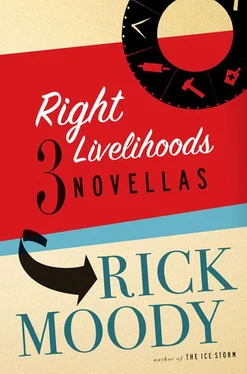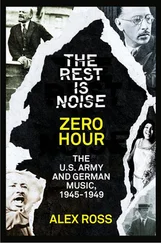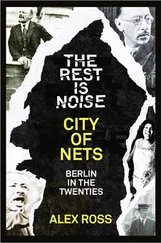Here it was. The Albertine sweatshop. There weren’t many buildings left in downtown Brooklyn, you know, because it was within the event horizon of the dirty bomb; a lot of the stuff on the waterfront was rubble. But this building was still here somehow, which implied that Eddie Cortez was subjecting his production staff to radioactive hazards. That was the least of it, of course, because most of the staff was probably high. Maybe that was the one job benefit.
“What are we doing here?” I asked the goons leading me past the surveillance gate and in through a front hall that looked remarkably like the reception area of the tits and lit magazine that had assigned my Albertine story in the first place. There was even one of those remote-control reception robots, just like at the magazine offices.
“Your questions will be answered in due course.”
“Really? Because I have a big backlog.”
“Don’t get smart; we will make it hurt, dig?”
More corridors, linkages of impossible interiors, then into an office. We were waved through without hesitation. The women and men in the typing pool with expressions of abject terror on their faces. Guys in red sweaters in every room, red neckties, matching socks. We passed a troika of potted ferns, and I was congratulating Eddie, silently, for using his ill-gotten profits for quality-of-life office accessories like the potted palms, when I noticed an administrative assistant I recognized.
Deanna. Remember her? If you don’t, you should lay off the sauce, gentle reader, because she was the character who told me about the plot to poison the water supply . The character who later became a hooker down by the Gowanus Canal. Have to say, considering the state of most of the people in the boroughs, Deanna was looking really great. I mean, she must have had some reconstructive dentistry, because back when I interviewed her, she had fewer teeth than fingers. Now she had on kind of a slinky silk blouse and what looked from this angle like a miniskirt. She still had long sleeves, of course. We recognized each other at the same moment, with a kind of disgust. I saw her eyes widen, I saw her look quickly around herself. To make sure no one had noticed. Was she working for Eddie now? Was she another employee drafted into the harem?
Then in the kind of frozen moment that can only happen in an era of completely subjective time, I began to understand that there was a commotion beginning around me, a commotion that had to do, I think, with Jesse Simons and Ernst Wentworth, who had remained so silent during the prior hour of kidnapping and torture that I had forgotten they were orbiting around me at all. They knew, I’d learned, what I knew; they saw what I saw. And I heard Jesse say to Ernst, No, I have to do it; she’s a woman; I don’t want to hear about any guys shooting any women . And Jesse Simons strode out of my memory, giving me a mournful glance on the way. Jesse, turns out, was carrying an enormous pistol with a silencer on the end, and as soon as she was on the scene, I could see the Cortez guys also moving into position with their submachine guns; there was a lot of yelling, someone was yelling Get him out of here, get him out of here , as if by removing me from the room, it would take Deanna out of the picture, out of the story. I hung on to a desk. They beat on me with the butt end of a submachine gun, and I looked up just in time to see Deanna, whatever her surname was, if she even had a surname, disappear at the muffled hiss and report of the silencer. The spot where Deanna had been sitting was emptied, and a plastic tape dispenser that she’d been holding in her hand was suspended briefly in midair. It fell to the wall-to-wall with a muffled thud. The men and women in the typing pool sent up a scream; many hands fluttered to mouths. And that was when Cortez’s people opened fire on the room. Cleaning out as many witnesses as they could get. As with Jesse and Ernst, who didn’t want to leave Deanna alive to inform on their plan, Cortez didn’t want any mnemonic jockeys recalling the scene. As if the solution to the disorder of time was the elimination of all possible perceivers of time. I want to allow a dignified space in the story where the Cortez typing pool was massacred, so if I move on with the facts, don’t think that I don’t know that all those people had families. Because I know.
Someone got hold of my feet — when I tried to make a quick escape myself — and they were swearing at me, dragging me down the corridor toward some blank, faceless office, where I too would be killed. Meanwhile, Ernst Wentworth, like the angelic presence that he was, had the job of explanation: “Deanna knew about the trip to the water supply on which we’re embarking now, with many thanks to you for helping us to close the loophole. You were the only person who knew the identity of this informer. Jesse is sticking with you for the last few minutes because there’s one more thing you have to learn before you’re done, and then, Kevin, you’re a free man, with a load of forgetting in your future. I hope you write comic books or start a rock-and-roll band in your garage. And I hope you do it all somewhere far away from here.”
Then the office door opened in.
I guess you already knew that Cassandra was sitting there. Wearing really high-end corporate gear from Italian designers who had managed to stay out of the international backlash against the American export market. Cortez Enterprises was about to have its limited public offering, I learned later, using a brokerage subsidiary that they owned themselves. So they had tarted up the office to impress some analysts. Cassandra was beautiful in a way I probably can’t describe, because beauty, ultimately, is outside of language. Though it may have something to do with memory. She was wearing a red bow.
One of Cortez’s goons, unless it was Eddie himself, said, “Kevin, I guess you don’t really remember your own mother?”
“My mother? What the hell are you talking about?”
Cassandra had cleaned up a lot since I last saw her. Which I was starting to recognize might have been four months ago. It was hard to tell. Still, she was my age, more or less, maybe a few years younger, so how was she supposed to be my mother?
One thing I’ll say for Cassandra, she had the kind of compassionate expression a mother should have had. “Are you all right?”
But the goons interfered with this tender moment.
“Okay, shoot ’em up.”
“Wait,” I said. “I’m already high, I’m already in somebody’s memory, I don’t even know if it’s my own memory anymore, so you’re getting me high inside a memory; that’s a memory inside a memory, right? When do we come back out to the present, to the part where I’m just a kid trying to make his way?”
“Shut that motherfucker up.”
Cassandra volunteered her arm, so I volunteered mine, covered with scars now, so much that they couldn’t find a vein.
“Do him in the neck.”
So they did. Without asking nicely.
I swirled into the rapture of the deep, far from all the shit that had accumulated since I first started researching the subject of Albertine. You know, my very first memory is of my grandfather, the Chinese immigrant patriarch, after his open-heart surgery. I was maybe three and a half years old. I never believed those memories. I never used to believe memory before an age when a kid could understand time . What comes before it? The rapture of the deep is what comes before. Before the scaffolding of time. Memories cartwheeling around in the empty heavens. Anyway, there he was on the stretcher in the living room, where he lived with us, doped on morphine. Doped for a good month, anyway. I can remember the implacable smile on his face: I ’ m suffering now, but I came here for you, so you wouldn’t have to suffer. So now go and do something. Make my sacrifices into your day at the beach. It lingered in my consciousness for a moment. From there the howling winds of recollection touched down on my abortive swimming lessons, then a summer on the Cape, walking on the seashore, up through childhood, from one associative leap to the next, all memories with beaches in them, then all memories with singing in them, memories featuring varieties of pie, like this was the very last mainline I was going to have, like they were going to make a biopic about my short life from this footage scrolling through my brain. Everything was roses. I was the smartest kid in my elementary school class, I was the class president. I was a shortstop player. Everything was roses. Until Serena showed up. Serena, who was exactly contemporary with that nameless dread creeping into my daily life. I was the only Asian kid my parents had ever known who panicked; Asians just didn’t panic, or they didn’t fucking talk about it, man, that was for sure, like that afternoon when I was supposed to take some government-ordered placement exam and I was in the bathroom puking, my father standing outside the door, telling me, in the severest language, that I was a disgrace. What was I going to do, drop out of society? Go work in a dry cleaner’s? Recite poetry to the customers while I was doing alterations? Did I think my grandfather had come from Shanghai, et cetera, et cetera, on a boat that almost sank, et cetera, et cetera, so that I could. . et cetera, et cetera, and then the sound of my mother’s voice telling him to lay off, my mother the microbiologist, or epidemiologist, why couldn’t I remember my mother’s job, she was never home, actually, she was always working. Come on. I called out to the Cortez flunkies, Hey, you guys, give me another shot, because nothing is chiming, I am telling you there is not a chime left in the belfry . I was still pressing a wet rag against the wound in my neck when a guy slapped me on the back of the head and told me to shut the fuck up, and then I was again on the Ferris wheel of it all, but I could see my father’s tassled loafers, and that’s when Jesse Simons was talking to me again, suddenly I was recognizing her voice.
Читать дальше












